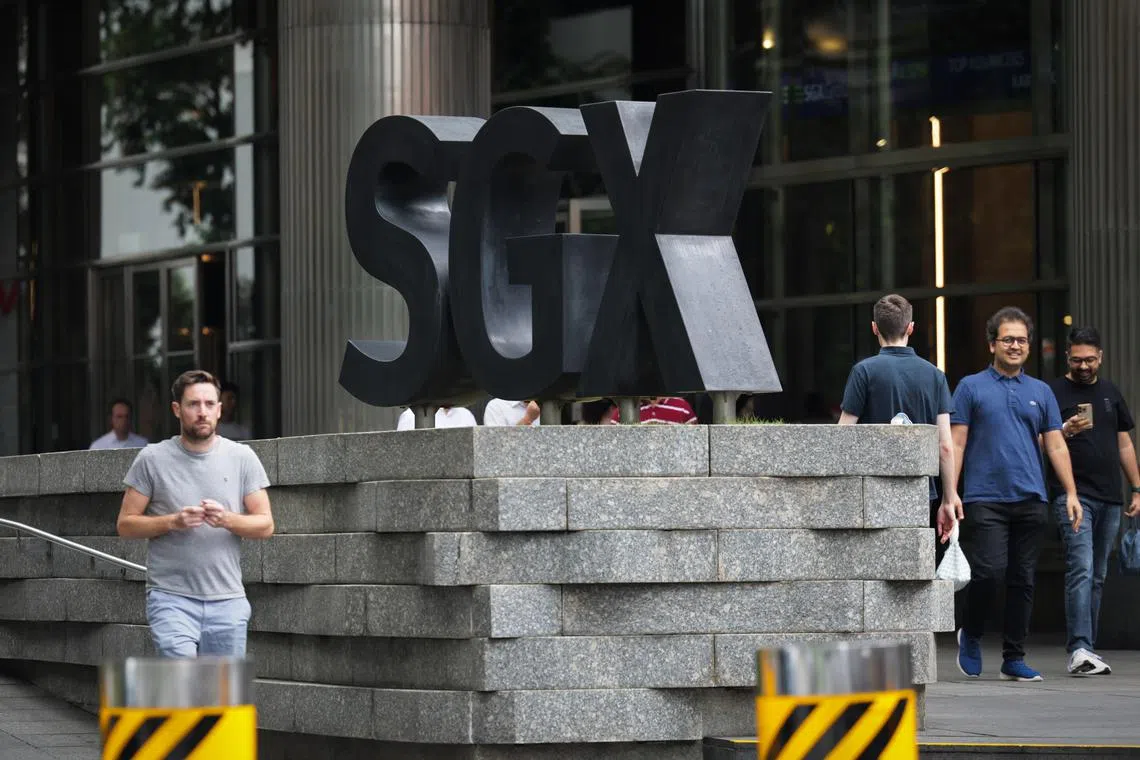Singapore shares end down as trade war fears escalate; STI down 0.1%
Sign up now: Get ST's newsletters delivered to your inbox

Investors opted for a defensive stance and nudged the Straits Times Index down 0.1 per cent or 4.04 points to 3,926.45.
PHOTO: ST FILE
Ranamita Chakraborty
Follow topic:
SINGAPORE – The four-day winning streak for local shares ended with barely a whimper on March 21 amid renewed fears of a trade war escalating.
Investors opted for a defensive stance and nudged the Straits Times Index (STI) down 0.1 per cent or 4.04 points to 3,926.45, while in the broader market losers outpaced gainers 284 to 234 on trade of 1.3 billion securities worth $2 billion.
Key regional bourses were a mixed bag after another downbeat session on Wall Street overnight that left all three indexes in the red, as optimism began fading over interest rate cuts. The falls in recent weeks have left the once-high-flying Nasdaq down 8.3 per cent so far in 2025.
Japan’s Nikkei 225 slid 0.2 per cent and Hong Kong’s Hang Seng declined 2.2 per cent but the Kospi in Seoul added 0.2 per cent while Australia’s benchmark ASX200 advanced 0.16 per cent to close the week up 1.7 per cent, the first such gain in four weeks.
ST Engineering was the STI’s biggest decliner, sliding 4.2 per cent to $6.62 after hitting successive highs in recent weeks and outstripping other leading blue chips. Maritime player Yangzijiang Shipbuilding was the top gainer, shooting up 5.6 per cent to $2.47. The trio of local banks ended the day mixed. UOB was up 0.4 per cent to $37.95, OCBC was down 0.2 per cent at $16.98 while DBS slid 0.2 per cent to $45.31.
IG market strategist Yeap Jun Rong noted on March 21 that while US Fed chairman Jerome Powell sought to reassure markets about the economy during the central bank’s meeting this week, its economic projections “painted a more concerning picture by highlighting rising stagflation risks”.
He also noted that the Fed’s projections factored in the implementation of tariffs, though the scale and timeline remained uncertain.
“While a recession is not inevitable, much depends on upcoming policy decisions from (Donald) Trump,” he added, referring to the US President. THE BUSINESS TIMES

